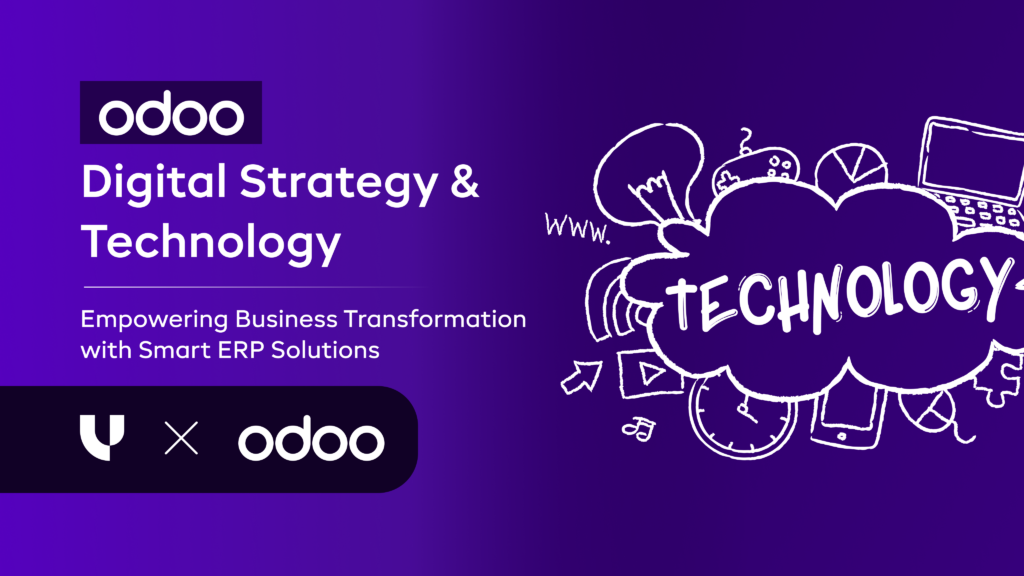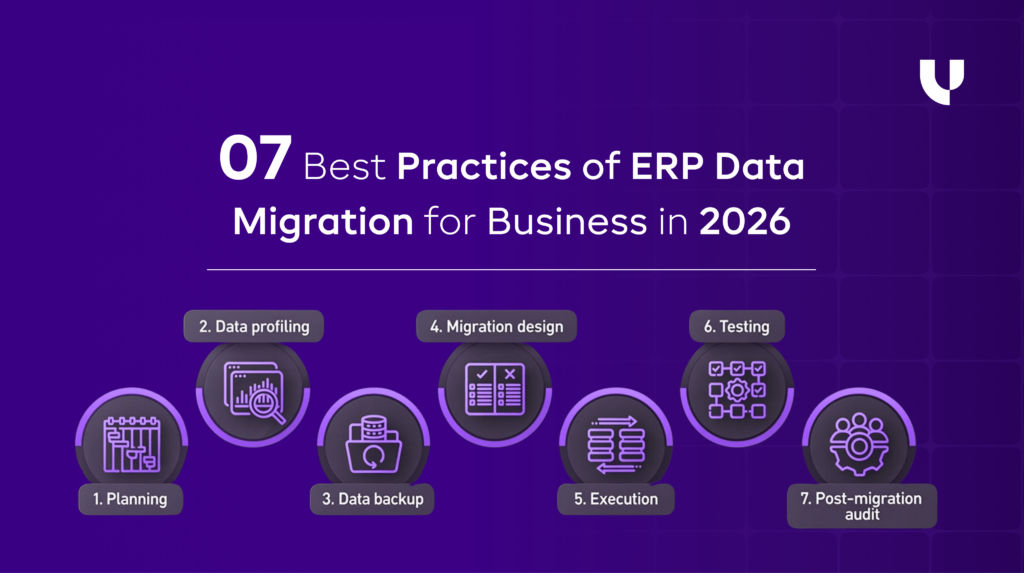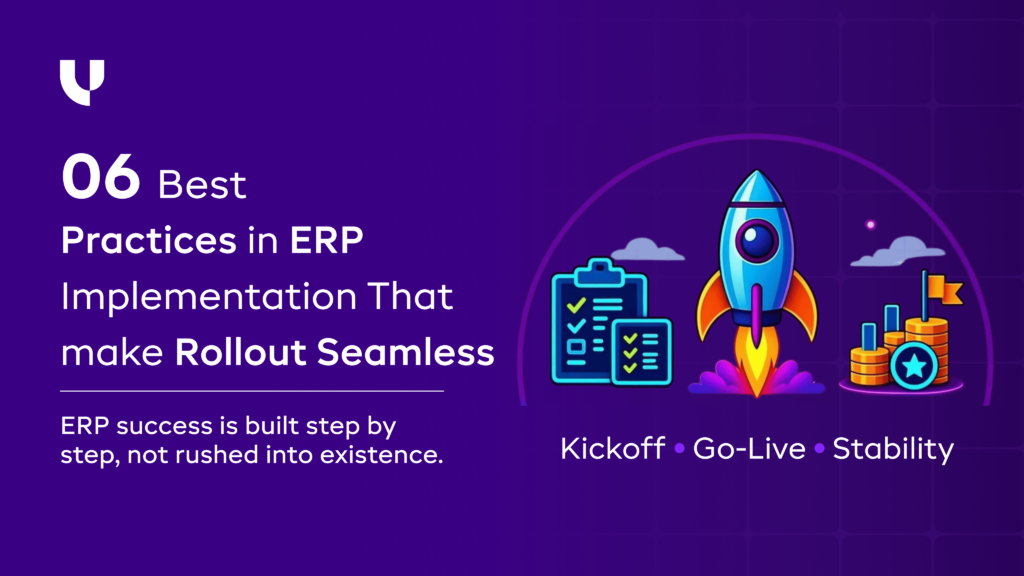Odoo Digital Strategy & Technology: Empowering Business Transformation with Smart ERP Solutions
Published on July 21st 2025

Introduction
In an era defined by rapid digital transformation, businesses need more than just software; they need strategic systems that unify operations, enhance agility, and drive growth.
Odoo, with its all-in-one ERP ecosystem, is emerging as a powerful solution for organizations seeking both flexibility and scalability. From finance and HR to inventory and CRM, Odoo’s modular architecture enables businesses to streamline workflows and eliminate silos across departments.
However, technology alone isn’t enough. Success lies in aligning ERP deployment with a clear digital strategy.
When implemented thoughtfully, Odoo becomes more than just a platform; it becomes the backbone of intelligent decision-making and operational efficiency. This article explores how Odoo ERP solutions are transforming businesses through smarter, data-driven systems.
Odoo’s Role in Business Digitization
For businesses seeking to digitize their operations, Odoo is becoming an increasingly popular ERP choice. Its open-source nature, modular architecture, and simplicity of integration make it an excellent choice for organizations of any size. Let's examine how Odoo facilitates digital transformation.
1. Cloud-based ERP for Scalability
Odoo allows businesses to choose between on-premises and cloud deployment strategies. Businesses can easily scale their operations using the cloud version, eliminating the complexity of maintaining an in-house IT infrastructure. Odoo's Software-as-a-Service (SaaS) platform is regularly updated, ensuring that businesses are always using the most up-to-date technology.
2. AI-Powered Automation and Insights
Odoo utilizes artificial intelligence and machine learning to streamline processes. AI-powered solutions, available in modules such as CRM and Sales, help firms predict customer behavior, automate follow-ups, and generate accurate projections. Odoo ERP for enterprises offers automation tools that also handle mundane tasks, such as emailing invoices, reminders, and purchase orders, freeing up staff's time for more valuable work.
3. IoT Integration for Smart Operations
Odoo's IoT module enables organizations to connect devices such as barcode scanners, sensors, and machines directly to their ERP system. This is especially important in manufacturing, as IoT integration enables real-time tracking of output and inventory levels, resulting in increased efficiency.
4. Modular Architecture Provides Maximum Flexibility
Odoo's modular architecture enables businesses to adopt only the functionality they need, allowing them to grow incrementally. With over 80 approved modules, ranging from accounting and inventory to human resources and e-commerce, firms can tailor their ERP system to their specific needs. Odoo's API also facilitates easy integration with third-party applications.
5. Mobile Access for Management on the Go
Odoo offers mobile apps for both Android and iOS, enabling managers and employees to access real-time data from anywhere. Whether monitoring stock levels, tracking sales, or approving invoices, the mobile ERP ensures operations run smoothly outside the office.
Why Odoo is the Future of ERP?
A. Open-source enables community support and creativity
Odoo's open-source nature supports ongoing innovation from a worldwide developer community. This collaborative atmosphere enables quick upgrades, new features, and security updates. Unlike proprietary ERPs, Odoo's implementation strategy offers reasonable customization without tying organizations to a specific vendor.
B. Cost-effective and accessible
Standard ERP solutions may be too pricey for small and medium-sized businesses. Businesses may only pay for the modules they use due to Odoo's low pricing, which disrupts the market. ERP democratizes access to cutting-edge technology, making it available to organizations of all sizes.
C. Seamless integration of business functions
Odoo's integrated modules support a wide variety of company processes. When the CRM, Sales, Inventory, and Accounting modules work together, organizations have a 360-degree perspective of their operations, which allows for speedier decision-making and better customer service.
D. Support for Industry
Odoo's characteristics are well aligned with the requirements of Industry 4.0, which emphasizes automation, data interchange, and smart technologies to accelerate innovation. Odoo's ability to integrate IoT devices, provide AI-powered analytics, and automate operations positions it at the forefront of the digital transformation era.
Want to start a project with us?
Empowering businesses to achieve greatness through strategic guidance and innovative solutions.
Book A Demo
Why Trust Odoo with Your Business Transformation
Odoo is designed to support organizations of all sizes and sectors. The system is modular, including apps for inventory, CRM, project management, ERP, eCommerce, and more. Let's examine why Odoo is revolutionizing the way businesses operate.
1. Centralized Operations to Ensure Seamless Integration
One major advantage of Odoo is that it enables the integration of all business processes into a single platform. Stated differently, it ensures that all departments have access to consistent, real-time data, eliminating the need for multiple IT solutions.
Imagine sales executives no longer needing to call stockists or switch to other systems to instantly monitor inventory using CRM. Imagine the accounting department issuing invoices based on sales orders in a similar manner. This is an illustration of an operational business model that is nimble and gives the market speed and data.
2. Customization to Meet Every Business Need
Odoo's recognition of the uniqueness of every business is its greatest benefit. SMEs, startups, and corporations may choose and install the required apps thanks to its modular business model. They are not required to purchase the whole suite of business apps that Odoo offers.
For instance, a manufacturing business can start by implementing Odoo's inventory and production modules. Modules for customer service, marketing, and human resources may be combined as the company and its people develop.
3. User-Friendly Interface
A challenging user interface can lead to higher rates of user abandonment. We're not referring to a checkout here. Users prefer simple software interfaces. Odoo's user-friendly interface addresses the challenge of usability. Odoo dashboards can be customized to suit your needs and are visually appealing. Additionally, it includes robust reporting and analytics features that provide useful real-time data.
4. Cost-effective for Businesses of Any Size
Popular ERP solutions, such as Salesforce ERP, SAP, and Microsoft Dynamics 365, tend to increase the operational costs for SMEs. Odoo, on the other hand, is an open-source company management solution platform that offers both a free community edition and an enterprise version with a pay-as-you-go option.
Odoo also allows you to customize as much as you desire. It allows users to choose and deploy the Odoo modules they need. You simply pay for what you use. Most firms will be captivated by this truth.
5. Automation to Increase Productivity
Manual or human error results from repetitive tasks. It would be beneficial to utilize an Odoo installation to automate time-consuming and repetitive tasks. It enables entrepreneurs to focus on the most crucial aspects of their business. Additionally, it frees up your resources, allowing you to concentrate on more significant tasks instead of repeating the same ones over and over again.
For instance, you may create follow-up emails for clients who leave their baskets empty using Odoo's marketing module. Revenue and conversion rates may increase as a result.
Real-World Applications of Odoo
One of Odoo's most notable advantages is its adaptability, which enables organizations across various industries to capitalize on its potential. Here are some instances.
Retail
A retail business's primary duties include managing inventory, selling products, and maintaining positive client relationships. Odoo Point of Sale (POS) seamlessly integrates with inventory and accounting modules, ensuring real-time stock updates, quick checkouts, and a clear accounting trail.
Manufacturing
Producers are typically stressed due to production scheduling, resource allocation, and quality control. Utilizing Odoo capabilities to manage work orders, track production in real-time, and ensure compliance with quality standards greatly simplifies these operations.
Service-Based Industries
Service providers require sophisticated project and billing systems. Odoo time modules help users distribute resources, monitor team performance, and track deadlines. They have all they need to guarantee that clients are correctly billed utilizing the Timesheet tool.
eCommerce
The Odoo eCommerce module helps businesses create customized online shops with integrated stock, trade, and marketing features. This involves developing a system that is well-synchronized with customers to enhance internet traffic and revenue.
Conclusion
Digital transformation encompasses more than just upgrading outdated goods and systems. It's more like reimagining anything you can conceive. It entails restructuring procedures, increasing team involvement, and collaborating using unified data. Odoo digital technology can elevate a business ecosystem by centralizing several key factors that empower the entire workforce and enable firms to thrive in today's environment.
Ready to reform your business with Odoo? Connect with our experts at Uncanny Consulting LLP today!

About Author


